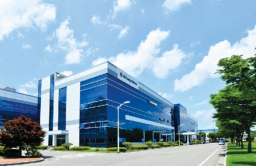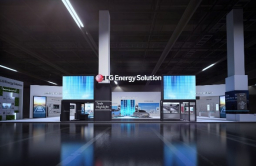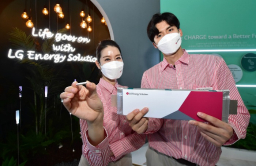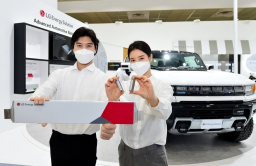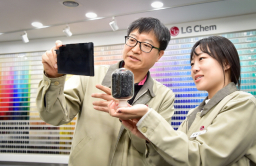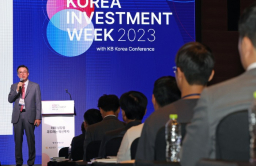-
KOSPI 2698.97 +1.30 +0.05%
-
KOSDAQ 740.29 +5.94 +0.81%
-
KOSPI200 359.69 +0.07 +0.02%
-
USD/KRW 1375 6.00 -0.44%
LG Energy expedites LFP battery supply chain expansion
Batteries
LG Energy expedites LFP battery supply chain expansion
The S.Korean EV battery major will source 160,000 tons of LFP cathode materials from China’s Changzhou Liyuan for five years
By
Feb 22, 2024 (Gmt+09:00)
2
Min read
News+
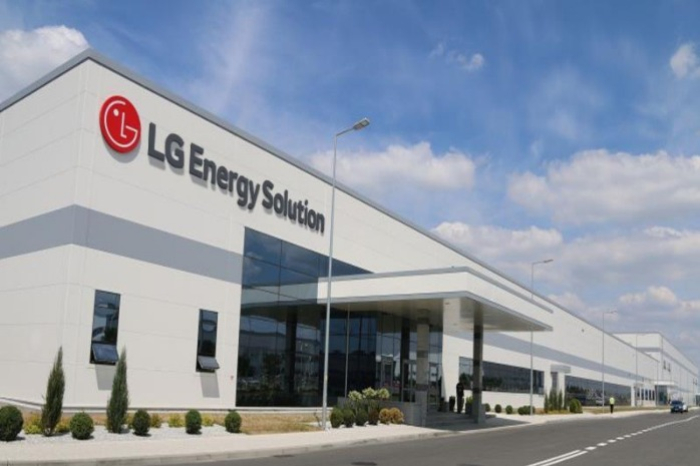
LG Energy Solution Ltd., the world’s second-largest electric vehicle battery maker, has secured enough lithium iron phosphate (LFP) cathode materials to power 1 million EVs in a bid to accelerate its foray into the rapidly growing LFP battery market.
The company, also South Korea’s No. 1 EV battery maker, announced on Thursday that it has signed a contract to receive about 160,000 tons of LFP cathode materials from Nanjing, China-headquartered Changzhou Liyuan New Energy Technology Co. for five years starting this year.
That is sufficient supply to power 1 million units of EVs that can drive more than 400 kilometers on a single charge, according to the company.
The pair will consider additional supply deals later depending on market conditions, said LG Energy Solution.
With this latest long-term supply contract, LG Energy Solution is expected to hasten its foray into the rapidly growing LFP battery market.
The Korean battery major has focused on the development of premium nickel-cobalt-manganese (NCM) and high nickel-cobalt-manganese-aluminum (NCMA) cathode EV batteries.
It shunned cheaper LFP batteries due to their inferior safety performance but with advancements in LFP battery technology, LFP batteries' safety and performance have improved significantly in recent years, buoying their demand.
LFP batteries use lithium iron phosphate (LiFePO4) as the cathode material, which is cheaper than other cathode materials used in batteries.
As a battery typically makes up about 40% of an EV price, battery makers are rushing to produce LFP batteries amid falling EV demand.
LFP BATTERY PRODUCTION PLANNED IN H2, 2025
LG Energy Solution aims to mass-produce LFP batteries for EVs in the second half of 2025 and is currently in talks with potential customers in Europe and North America.
Last week, LG Energy Solution’s Chief Executive Officer Kim Dong-myung confirmed the company’s plan for commercial production of EV LFP batteries late next year.
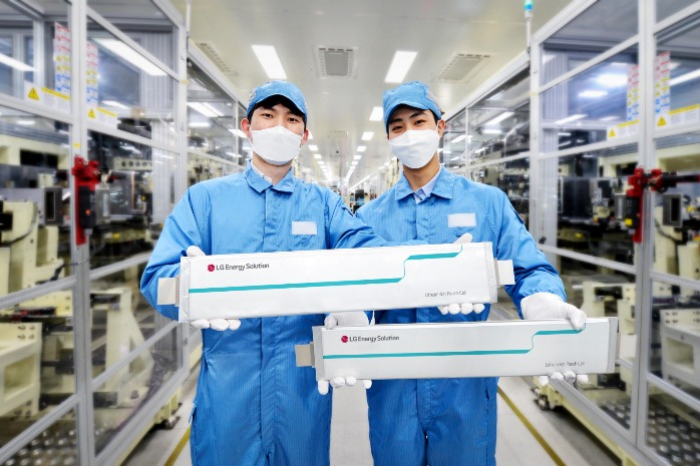
The company already started churning out LFP batteries for energy storage systems (ESS) from its factory in Nanjing late last year.
It also announced in November last year to produce mid-nickel, high-voltage lithium batteries this year, a year ahead of its original plan.
With the addition of low-cost, mass-market battery products, such as mid-nickel, high-voltage lithium batteries and pouch-type LFP batteries, LG Energy Solution will step up the diversification of its EV battery lineup to cater to the different needs of its customers, Lee Chang-sil, LG Energy Solution’s chief financial officer, said during the company’s fourth-quarter earnings conference call in January.
The company also plans to mass-produce 46-Series small batteries in the second half of this year.
It aims to stay cost-competitive by expanding direct material procurement arrangements, developing new materials and increasing direct investment in supply chains.
Changzhou Liyuan, founded in 2021, is capable of producing 310,000 tons of LFP cathode materials annually.
It also owns an LFP cathode materials factory in Indonesia with an annual production capacity of 30,000 tons, which will eventually be ramped up to 120,000 tons.
Write to Woo-Sub Kim at duter@hankyung.com
Sookyung Seo edited this article.
More To Read
-
Jan 26, 2024 (Gmt+09:00)
-
Jan 25, 2024 (Gmt+09:00)
-
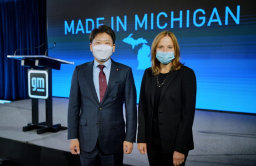 Executive reshufflesLG Energy's new CEO aims to focus on qualitative growth
Executive reshufflesLG Energy's new CEO aims to focus on qualitative growthDec 01, 2023 (Gmt+09:00)
-
Nov 20, 2023 (Gmt+09:00)
-
Oct 25, 2023 (Gmt+09:00)
-
Sep 24, 2023 (Gmt+09:00)
-
Sep 11, 2023 (Gmt+09:00)


